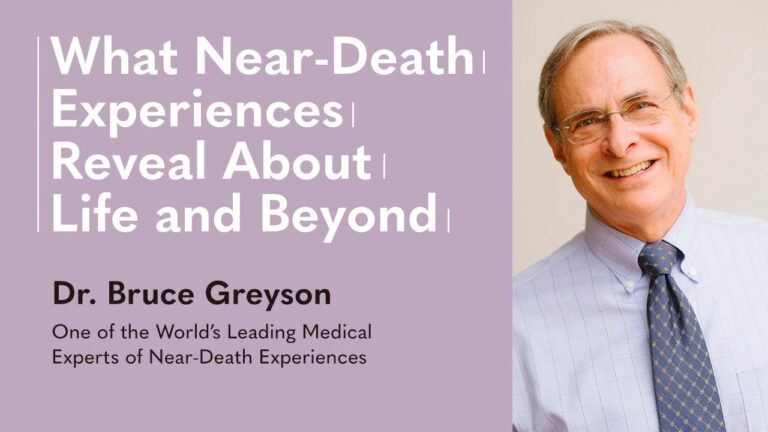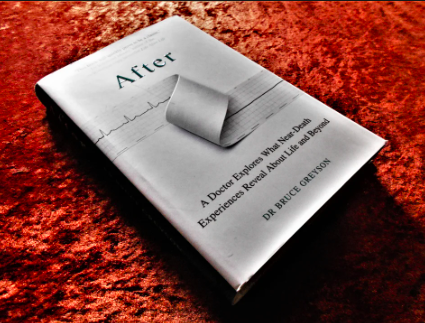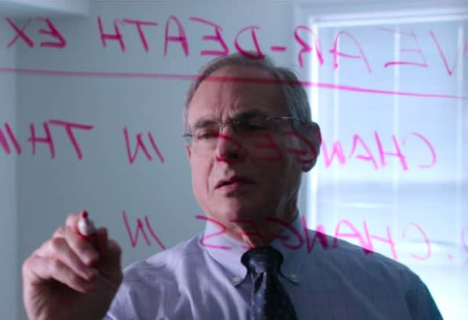Bruce Greyson is a leading researcher in the field of near-death experiences (NDEs). He is a professor emeritus of psychiatry and neurobehavioral sciences at the University of Virginia School of Medicine, where he founded and directed the Division of Perceptual Studies. Greyson’s pioneering work on NDEs has helped to shape our understanding of this intriguing and often misunderstood phenomenon. His work and testimonial evidence is documented in his book; “After – A Doctor Explores What Near-Death Experiences Reveal about Life and Beyond.”
Greyson’s interest in NDEs began in the early 1970s, when he encountered a patient who had experienced an NDE during a cardiac arrest. Intrigued by the patient’s report of a transcendent experience, Greyson began to investigate the phenomenon in more detail. He soon discovered that many people who had experienced cardiac arrest or other life-threatening events reported similar experiences of moving through a tunnel, encountering deceased loved ones, and experiencing a sense of peace and transcendence.
Greyson’s research on NDEs has focused on several key areas. One of his most significant contributions has been the development of the Greyson NDE Scale, a standardized tool for assessing the depth and content of NDEs. The scale includes 16 items that cover a range of experiences, including testimonial evidence of feeling being outside one’s body, moving through a tunnel, encountering deceased loved ones, and experiencing a sense of peace and joy. The scale has been used in numerous studies of NDEs, and has helped to establish a more consistent and reliable method for measuring the phenomenon.

Greyson has also conducted research on the relationship between NDEs and other forms of mystical or spiritual experiences. He has found that many people who have had NDEs also report other mystical experiences, such as spontaneous visions, out-of-body experiences, and experiences of oneness with the universe. Greyson has proposed that these experiences may all be related to a fundamental sense of transcendence or spiritual connectedness that is common to many human beings.
In addition to his research on NDEs, Greyson has also been involved in clinical work with patients who have had these experiences. He has found that many people who have had NDEs struggle to integrate their experiences into their everyday lives, and may experience feelings of confusion, isolation, or even depression as a result. Greyson has worked with these patients to help them come to terms with their experiences, and to find ways to use them as a source of inspiration and meaning.

Greyson’s work on NDEs has been the subject of numerous articles and book chapters, and has helped to raise awareness of this fascinating and often misunderstood phenomenon. His research has also had implications for our understanding of consciousness, spirituality, and the nature of reality itself. By studying the experiences of people who have had NDEs, Greyson has helped to shed light on some of the most profound mysteries of human experience.
Despite the many contributions that Greyson has made to our understanding of NDEs via testimonial evidences, the phenomenon remains controversial in some circles. Skeptics have argued that NDEs are simply the result of oxygen deprivation or other physiological processes, and that they have no real spiritual or metaphysical significance. However, Greyson and other researchers have pointed out that many people who have had NDEs report experiences that are difficult to explain in purely physiological terms, such as encounters with deceased loved ones or a sense of profound spiritual connectedness.
Despite the controversy, Greyson remains committed to studying NDEs and other forms of mystical experience. He has said that his work is driven by a desire to understand the nature of consciousness and the human experience of transcendence. His research has helped to shed light on some of the most profound mysteries of human existence, and has helped to open up new avenues for exploration and inquiry. Bruce Greyson is a pioneering researcher in the field of near-death experiences.
